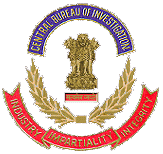CBI submits second report on Nandigram violence to Calcutta HC
 Kolkata, Feb. 14: The Central Bureau of Investigation (CBI) submitted a second report on the March 14, 2007 firing incident in Nandigram, West Bengal, to the Calcutta High Court on Friday.
Kolkata, Feb. 14: The Central Bureau of Investigation (CBI) submitted a second report on the March 14, 2007 firing incident in Nandigram, West Bengal, to the Calcutta High Court on Friday.
The incident left 14 people dead, and the high court had asked the CBI to make inquiries into what prompted the police to open fire when thousands of villagers had gathered to protest the police's forced attempt to enter Nandigram.
Locals have been agitating against the state government's decision to acquire land for a chemical hub in Nandigram.
The CPI(M) had alleged that outsiders were brought into Nandigram on March 14 to shore up the protests, which steadily gained momentum and led to the entire area becoming a killing field for 11 months.
Six days ago, the National Human Rights Commission (NHRC) had lampooned the West Bengal Government for failing to stop Communist Party of India-Marxist (CPI-M) and Bhoomi Uchhed Pratirodh Committee (BUPC) activists from indulging in acts of violence against farmers and land owners in Nandigram between November 2006 and March 2007.
In a scathingly critical nine-page report released here last Friday, the three-member NHRC headed by Justice S. Rajendra Babu, described the incidents in Nandigram as unfortunate, and said: "The State Government does not appear to have discharged its primary obligation in preventing the attack by CPI (M) cadres. It should bear responsibility for the loss of life and property. Neither the CPI (M) nor the BUPC can escape their share of responsibility."
It also condemned the action of the police in opening fire on unarmed farmers, saying the move was blatantly unconstitutional, as it cost the lives of 14 people and injury to around 300 people, including 52 police personnel. Therefore, it required investigation by the Central Bureau of Investigation (CBI).
In making its six observations on the incident, the NHRC said that since agriculture is the only source of livelihood for farmers, compensation in terms of money for acquisition of their land "may not be adequate."
"The (West Bengal) Government should take the local people into confidence and it should also ensure an alternative means of livelihood and shelter for the displaced. Whether in addition to monetary compensation, any other land can be given to relocate or can be linked to the (Special Economic Zone) project for which the land is acquired by allocating an adequate number of shares and providing employment to at least one member of each affected family and similar other measures may be considered," the NHRC report states.
It also says that the State Government should appoint advisors to help the dispossessed farmers to invest the money received as compensation wisely.
The NHRC also said that the police and the bureaucracy needed to keep themselves aloof from political influence, adding that alignment with a party in power "results in erosion of public trust, which leads to avoidable misery".
To the West Bengal Government, it said: "The party in power should always be alive to its constitutional obligation to rule without favour and prejudice. It should never encourage or connive with the illegal activities of its supporters."
The opposition it said has the right to highlight the failures of the government, but not the right to encourage people to indulge in unlawful activities.
There is therefore a need for both the party in power and the opposition to engage in continuous dialogue and to be motivated to think of the good of the people at large, it added.
The media too had a responsibility to adopt a balanced and unbiased approach while reporting events, the NHRC report says, adding that in the case of the Nandigram incident, "it had failed in its duty to emphasise that the blockade of a large area of Nandigram by the agitators was unconstitutional."
It may be recalled that the State Government had planned to set up a SEZ for chemical industries in Nandigram, but had to abort the project, as villagers refused to give up their farmland for the project.
The row saw violent clashes between residents opposed to the project and the communist supporters as well as police. (ANI)